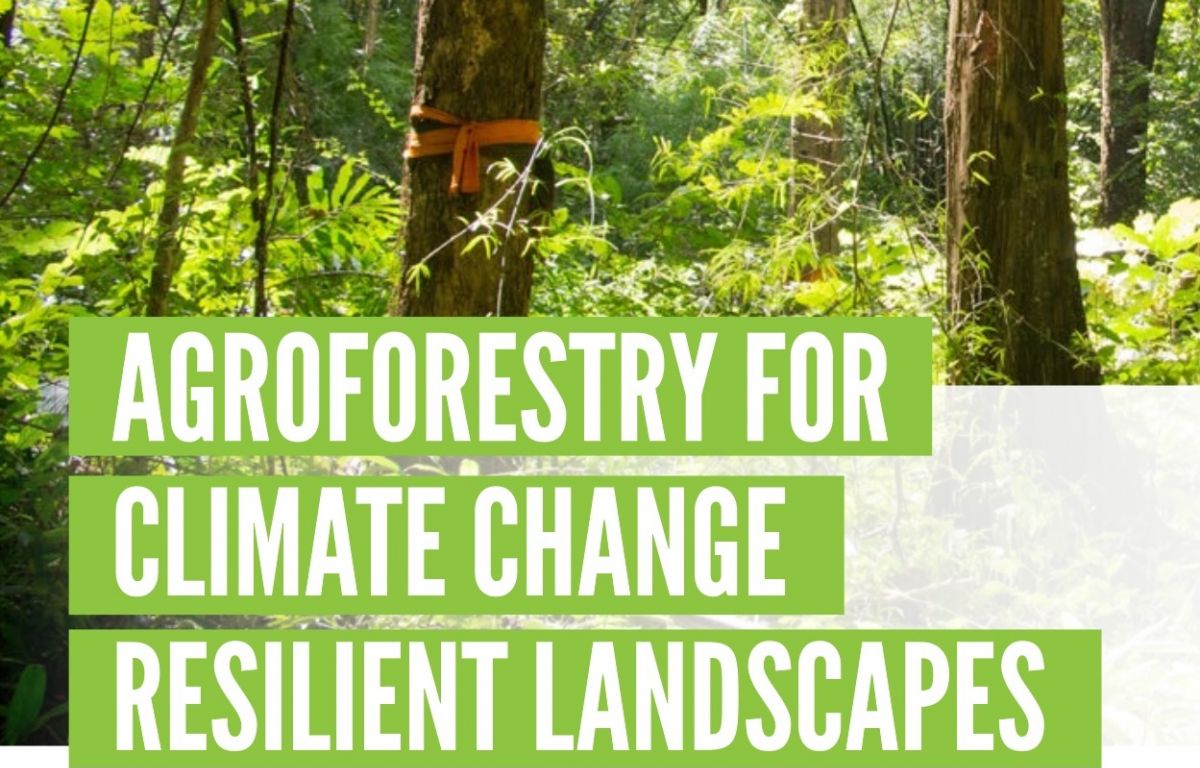Agroforestry for Climate Change Resilient Landscapes

Agroforestry is increasingly seen as a strategic intervention to increase climate change resilience and improve the livelihoods of local communities. Agroforestry has also been widely applied as a successful approach in community forestry (CF), as it has potential to maximize economic and environmental benefits. This is also true for smallholder CF. It has a significant role in supporting forest landscape restoration (FLR) and addresses some of the livelihood gaps that may occur in the short term due to natural regeneration or the establishment of plantations.
For maximum benefits, however, agroforestry practitioners need to understand the basic principles of agroforestry and how this links to the adaptive capacity and resilience of local communities. They need to be able to support local farmers in the design, establishment and management of agroforestry systems. Good agroforestry practice includes considering different ecological contexts, market opportunities and access to resources. In reality, more agroforestry extensionists who are able to facilitate and support communities in the development of agroforestry are needed.
RECOFTC, together with ICRAF, will hold a joint training course for national and sub-national level trainers and practitioners from the forestry and agriculture sectors who seek to promote agroforestry as a climate change resilience strategy. The course will increase skills and knowledge on how to design, establish and manage agroforestry systems within a landscape and with local communities as the focal point. By focusing on local communities within landscapes, we aim to increase the communities’ resilience to climate change.
Course objectives
At the end of the course, participants will be able to:
- Describe the linkages between agroforestry and landscape level climate change resilience
- Use basic agroforestry principles to identify a broad set of interventions within a landscape
- Develop a facilitation plan to work with stakeholders,including local farmers, to design and implement agroforestry systems that supports landscape level climate change resilience
- Identify criteria and indicators based on agroforestry principles to measure success of agroforestry programs that increases resilience within a landscape
Who should join?
- Trainers with a mandate to train field facilitator and local communities on the topic
- Field extensionists who provide technical support to local farmers
- Project officers who want to design agroforestry programs for a landscape management plan
Course content
Within the 5-day course, experienced experts from ICRAF and RECOFTC will cover issues such as:
- Principles of agroforestry within a landscape
- Role of agroforestry in ensuring climate change resilience within the landscap
- Landscape multi-functionality and climate change
- Challenges and opportunities for agroforestry development
- Designing,planning and implementing, and managing agroforestry interventions
- Monitoring and evaluation of agroforestry programs at the landscape level

